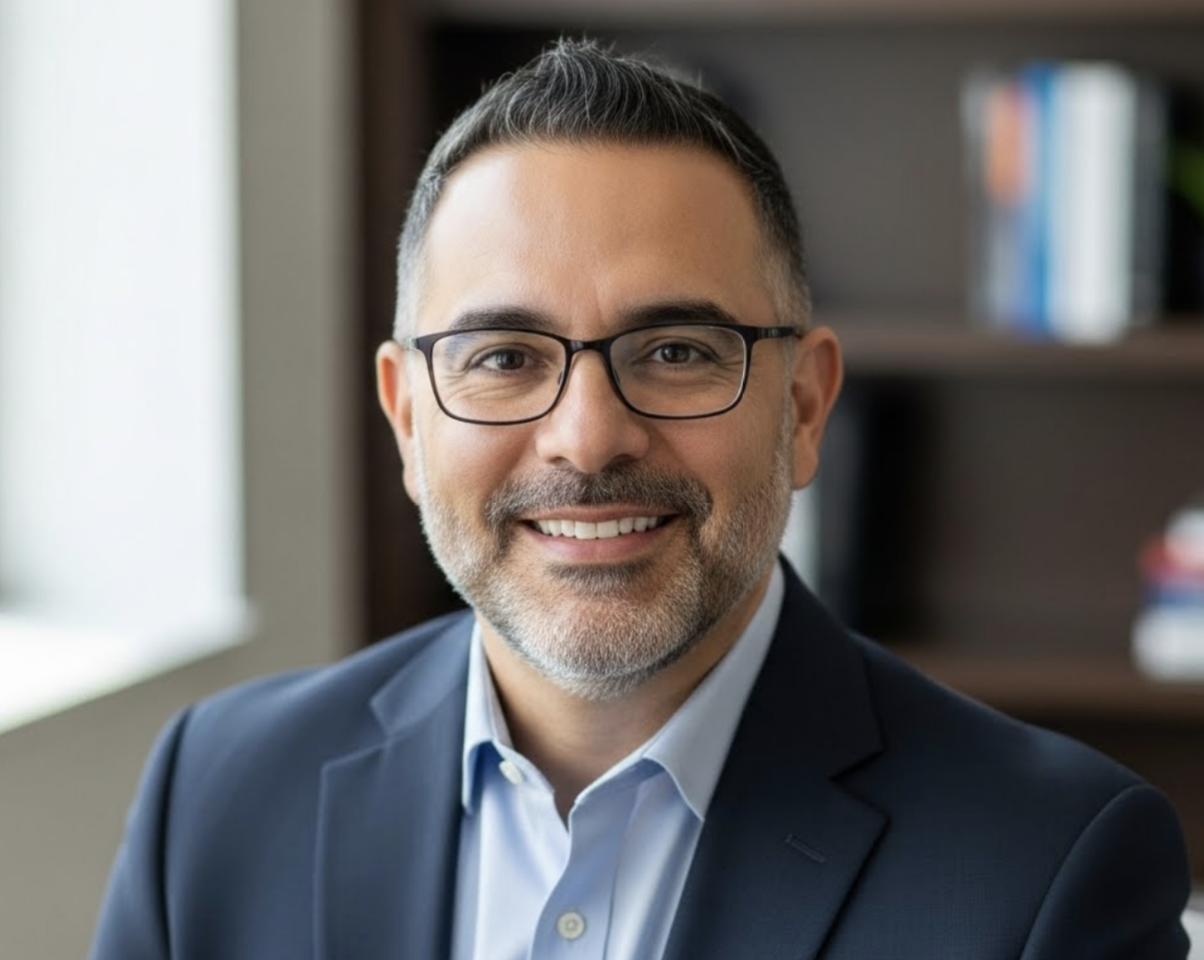You don’t need to go back to school for a full degree to add addiction counseling to your practice. If you’re already a licensed mental health professional, you can pursue specialized credentials through your existing professional pathway—whether that’s MAC certification for counselors, ABPP for psychologists, C-CATODSW for social workers, or CARN for nurses. Each requires 1-3 years of supervised experience, 30-180 hours of continuing education, and passing a certification exam.
If you’re a licensed counselor, psychologist, social worker, or healthcare provider, you’ve probably noticed something: addiction isn’t staying in its lane anymore. It’s showing up everywhere—in your therapy sessions, your case files, your ER shifts. And you’re realizing that the training you got in grad school? It’s not quite enough for what you’re seeing now.
Maybe you’ve had clients open up about substance use and felt underprepared to respond. Or you’ve watched someone spiral and wondered if you had the right tools to help. You’re not alone in this. The fentanyl crisis, rising stimulant use, and the sheer volume of people struggling with co-occurring disorders have left many professionals asking the same question: How do I get better at this without starting over?
Here’s the good news: You don’t need another master’s degree. You don’t need to abandon your current license. What you need is a clear pathway to add addiction counseling skills and credentials that complement what you already do—and those pathways exist for every major mental health profession.
Why You Need Specialized Training to Treat Addiction
Here’s the reality: having a counseling or psychology license doesn’t automatically qualify you to treat substance use disorders effectively. And honestly? It shouldn’t. Addiction is a specialized field with its own evidence-based practices, assessment tools, and treatment protocols that most general mental health programs barely touch.
Think about it. How many hours did your program spend on motivational interviewing specifically for substance use? On medication-assisted treatment protocols? On relapse prevention planning or harm reduction strategies? For most professionals, the answer is somewhere between “a few lectures” and “basically nothing.”
That gap matters—not just for your professional development, but for your clients’ safety. Treating addiction without proper training can mean missing critical warning signs, using interventions that backfire, or inadvertently enabling patterns you’re trying to break. It’s why most professional liability insurance policies specifically exclude substance abuse treatment unless you have documented training or credentials in that area.
But it’s not just about avoiding harm. Specialized training makes you better at what you already do. You’ll recognize substance use patterns earlier. You’ll know how to navigate tough conversations about drug use without clients shutting down. You’ll understand the neurobiological changes that explain why your usual cognitive-behavioral strategies aren’t working the way they should.
And from a practical standpoint? Adding addiction counseling credentials opens doors. It expands your client base, makes you more valuable to employers, and positions you to serve one of the fastest-growing treatment populations in mental health. According to HRSA’s 2024 workforce report, demand for substance abuse counselors is projected to grow significantly faster than the national average for all occupations—and the need for dual-credentialed professionals who can address co-occurring disorders is even higher.
If you’re considering becoming a certified addiction counselor, understanding the specialized training requirements is your first step toward expanding your practice effectively.
Training Options by Profession
The path you take depends on the license you already hold. Let’s break down the major routes.

Licensed Professional Counselors (LPCs)
If you’re a licensed professional counselor, your clearest pathway is the Master Addiction Counselor (MAC) credential through the National Board for Certified Counselors (NBCC).
What it requires:
- Active NCC (National Certified Counselor) credential
- Master’s degree in counseling or related field (you already have this)
- 12 semester hours (or 180 clock hours) of addiction-focused graduate coursework
- 3 years and 3,000 hours of supervised work experience in addiction counseling (1,500 hours must be direct client contact)
- Passing score on the MAC exam
Timeline: Typically 2-3 years if you’re working in the field while pursuing it.
Real talk: The 12 semester hours are the sticking point for most LPCs. If your master’s program didn’t include addiction coursework, you’ll need to take those courses—but you don’t need to enroll in a full degree program. Many universities offer graduate certificates in addiction counseling that knock out these requirements in 1-2 semesters.
Why it’s worth it: The MAC is nationally recognized and reciprocal in most states. It signals to employers and clients that you have legitimate expertise beyond your general counseling training.
Psychologists
If you’re a licensed psychologist, you have two main options—depending on whether you want to focus on clinical treatment or broader policy and research work.
Option 1: ABPP Board Certification in Clinical Psychology (Addiction Psychology Specialty)
The American Board of Professional Psychology (ABPP) offers board certification in addiction psychology.
What it requires:
- Doctoral degree in psychology
- Current state license
- 100 hours of continuing education in addiction psychology
- 1,500 hours of supervised practice in addiction settings
- Submission of work samples
- Oral examination before a board of specialists
Why choose this: It’s the gold standard for psychologists working in addiction. It demonstrates mastery-level competence and opens opportunities in forensic settings, research, and leadership roles.
Option 2: Certificate Programs in Addiction Psychology
Many psychology organizations and universities offer specialized certificate programs designed for licensed psychologists. These typically involve:
- 30-60 CE hours focused on substance use disorders
- Case consultation
- Self-study modules on evidence-based addiction treatments
While these don’t carry the same weight as ABPP certification, they’re faster and provide solid foundational training if you’re primarily looking to integrate addiction treatment into a broader practice.
Social Workers
If you’re a licensed social worker (LCSW, LMSW), you’ve got options through both NASW and independent certifying bodies.
Primary pathway: C-CATODSW (Certified Clinical Alcohol, Tobacco, and Other Drugs Social Worker)
This credential was developed specifically for social workers treating substance use disorders.
What it requires:
- Master’s degree in social work
- Current state license (LCSW or LMSW)
- 2 years and 3,000 hours of supervised clinical experience in substance abuse settings
- Passing the ASWB Advanced Clinical Exam (if not already completed for LCSW)
- Additional examination demonstrating addiction-specific competencies
Current status note: Some states have paused new C-CATODSW certifications pending updates to credentialing standards. Check with your state’s NASW chapter for current availability.
Alternative: State-specific addiction counselor credentials
Many states allow licensed social workers to pursue their state’s addiction counseling credentials (LADC, CADC, etc.) as a parallel track. These follow state-specific requirements but are generally recognized within that state’s professional licensing framework. You can explore the full certification process to understand different credential pathways.
Healthcare Professionals (Nurses, Physicians, Physician Assistants)
If you’re in a healthcare role, your pathways focus on clinical addiction medicine and specialized patient care.
For Nurses: CARN (Certified Addictions Registered Nurse)
Offered through the Addictions Nursing Certification Board, this is the primary credential for nurses working in substance abuse treatment.
What it requires:
- Active RN license
- 4,000 hours of addiction nursing practice within the past 5 years (or 2,000 hours plus approved education)
- 30 hours of continuing education in addiction within the past 3 years
- Passing the CARN exam
Advanced option: CARN-AP for nurse practitioners who want to prescribe addiction medications (buprenorphine, naltrexone, etc.)
For Physicians and PAs: Addiction Medicine Boards
Physicians and physician assistants can pursue board certification through the American Board of Addiction Medicine (ABAM) or fellowship training through organizations like ASAM.
DEA X-Waiver Training (recently updated under new federal guidelines) allows prescribers to offer medication-assisted treatment (MAT) with buprenorphine. While no longer requiring a separate waiver, DEA still recommends 8-24 hours of training depending on patient volume.
Specialty Credentials Beyond the Basics
Once you have foundational addiction training, you can pursue specialized credentials in high-demand areas:
- Certified Clinical Supervisor (CCS) – For professionals who want to supervise trainees in addiction counseling settings
- Gambling Disorder Specialist – Emerging credential as problem gambling becomes more recognized as a behavioral addiction
- Adolescent Substance Abuse Specialist – Focus on treating youth populations, which requires different approaches than adult treatment
- Co-Occurring Disorders Specialist – Specifically trained in treating clients with both substance use and mental health diagnoses simultaneously
These specialty credentials typically require your base certification plus additional supervised hours and coursework in the specialty area.
The Case for Dual Certification

Should you maintain both your primary mental health license and an addiction-specific credential? In most cases, yes—and here’s why.
It protects your scope of practice. Your mental health license allows you to treat anxiety, depression, trauma, and other conditions. Your addiction credential allows you to provide substance abuse treatment and bill under addiction service codes. Having both means you can treat the whole person without restricting your practice.
It increases your value. Dual-credentialed professionals are in high demand at community mental health centers, hospitals, and private practices. According to workforce data, professionals who can address co-occurring disorders command higher salaries and have more job mobility.
It opens reimbursement options. Some insurance panels specifically require addiction credentials for substance abuse treatment claims, even if you’re a licensed therapist. Dual certification removes that barrier.
It signals competence. Clients and referral sources recognize the difference between a therapist who “also sees addiction” and one with formal training and credentials. It builds trust.
The cost and time investment are manageable. Most pathways require 1-3 years of supervised experience you can accumulate while working in your field, plus 30-180 hours of continuing education spread over that time. You’re not starting from zero—you’re building on existing expertise.
How Continuing Education Counts Toward Both Licenses
Here’s a practical benefit most professionals don’t realize: continuing education hours completed through NAADAC (the National Association for Addiction Professionals) often count toward both your addiction credential and your primary mental health license renewal.
NAADAC approves courses in:
- Motivational interviewing
- Trauma-informed care
- Ethics in dual-diagnosis treatment
- Medication-assisted treatment protocols
- Cultural competency in addiction services
These topics are directly relevant to general mental health practice, which means many licensing boards accept them for renewal credit.
Translation: You’re not doubling your CE requirements. You’re strategically choosing courses that satisfy both credentials while making you better at your job.
Pro tip: Check with your state licensing board before taking courses to confirm they’ll accept NAADAC-approved hours. Most do, but requirements vary. For detailed information about CE requirements, explore continuing education requirements for maintaining certification.
Professional organizations play a crucial role in connecting professionals with CE opportunities and credential support. Learn more about professional organizations like NAADAC and how they can support your credentialing journey.
Frequently Asked Questions
Can I treat substance abuse without additional certification?
How long does it take to add addiction counseling credentials?
Do I need a separate master’s degree in addiction counseling?
Will adding addiction certification increase my income?
What’s the easiest path to add addiction credentials based on my profession?
Are these credentials recognized in all states?
How much does addiction certification cost?
Can I bill insurance for addiction treatment with dual credentials?
Key Takeaways
- You don’t need a separate master’s degree to add addiction counseling to your practice—specialized credentials build on your existing license.
- Licensed Professional Counselors pursue MAC certification through NBCC, requiring 3 years of supervised experience and 12 graduate semester hours in addiction.
- Psychologists, social workers, nurses, and physicians each have profession-specific pathways (ABPP, C-CATODSW, CARN, and addiction medicine boards).
- Most pathways require 1-3 years of supervised clinical experience (2,000-3,000 hours), 30-180 hours of continuing education, and passing a certification exam.
- Dual certification opens access to high-demand roles treating co-occurring disorders and may increase income potential, though impacts vary by setting and region.
- NAADAC continuing education courses often count toward both your addiction credential and your primary mental health license renewal, reducing duplicative CE requirements.
Ready to Add Addiction Counseling to Your Practice?
Explore state-specific requirements and find accredited training programs that align with your professional background.







